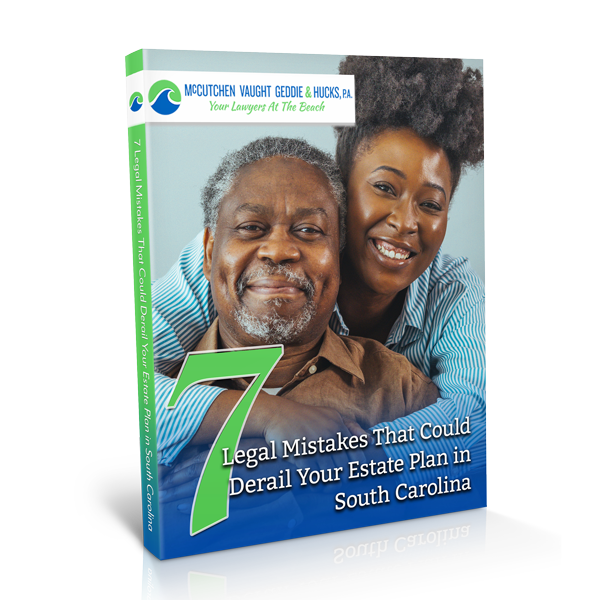Estate Planning Lawyers in South Carolina
Estate planning is one of the most essential steps you can take to protect your assets, safeguard your legacy, and ensure that your wishes are carried out after you’re gone. Without a well-crafted estate plan, your family could face significant legal and financial challenges. Estate planning is not just for the wealthy, and it’s crucial for individuals and families of all backgrounds. In South Carolina, as in other states, effective estate planning can offer peace of mind, minimize taxes, and protect your loved ones from unnecessary legal complications.
An estate plan serves as a comprehensive roadmap for the distribution of your wealth and assets upon your death, as well as for making important healthcare and financial decisions if you are unable to do so yourself. By working with our estate planning lawyers in South Carolina, you can ensure that your plan reflects your values, goals, and desires, while addressing potential challenges and uncertainties down the road.
Wills And Trusts: Foundations of Estate Planning
A will is one of the most fundamental components of estate planning. It specifies how you want your assets to be distributed, who will be responsible for managing your estate, and who will take care of any minor children. Wills are essential for anyone with assets they want to pass on, whether it’s a house, personal property, or investments. However, it’s important to remember that a will only takes effect after your death, and it may be subject to probate, which can be a lengthy and costly process.
A trust is another important tool in estate planning. Trusts allow you to transfer assets to beneficiaries without going through probate, which can save both time and money. There are different types of trusts available, each with specific purposes. For example, revocable living trusts give you flexibility during your lifetime and help ensure that your estate avoids the probate process after death. By consulting with experienced estate planning lawyers in South Carolina, you can create a trust that fits your needs and helps secure your assets for future generations.
Powers of Lawyer And Living Wills: Protecting Your Health And Financial Affairs
In addition to wills and trusts, a comprehensive estate plan includes powers of lawyer and living wills. A durable power of lawyer allows you to appoint someone to make financial decisions on your behalf if you become incapacitated. This legal document is crucial because it ensures that your finances are managed in accordance with your wishes if you are unable to manage them yourself.
Similarly, a healthcare power of lawyer allows you to appoint someone to make medical decisions for you in the event that you are unable to communicate your wishes. This is especially important in the case of serious illness or accidents, as it provides your loved ones with clear guidance on how to act in your best interest.
A living will, on the other hand, outlines your preferences for medical treatment, such as whether you want life-sustaining measures in place if you are in a terminal condition. Having these documents in place ensures that your wishes are honored and provides clarity to your family and healthcare providers.
Minimizing Taxes And Avoiding Probate
A key benefit of estate planning is the ability to minimize estate taxes and other financial burdens that may arise after your death. Without a proper estate plan, your estate could be subject to significant estate taxes, which could deplete the value of your legacy. Effective planning through trusts, charitable donations, and other financial strategies can help reduce these taxes and protect your wealth for your heirs.
Avoiding probate is another major concern for many individuals. Probate is the legal process of administering a deceased person’s estate, which includes validating the will, paying debts, and distributing assets. The probate process can be time-consuming, expensive, and public. By creating a living trust or using other estate planning tools, you can avoid probate, ensuring a faster and more private distribution of your assets to your beneficiaries.
Regularly Reviewing And Updating Your Estate Plan
Your estate plan should not be a one-time task. It’s essential to review and update your plan regularly to ensure it remains in line with your life circumstances. Major life events such as marriage, divorce, the birth of children or grandchildren, or a significant change in financial circumstances can have a substantial impact on your estate planning needs. Regularly revisiting your estate plan with your estate planning lawyer ensures that your wishes are up to date and accurately reflect your current situation.
In addition, changes in tax laws or estate planning regulations may require adjustments to your estate plan to maintain its effectiveness. For example, South Carolina’s estate tax laws or federal estate tax exemptions may change, affecting how your assets are taxed after your death. By working with our knowledgeable estate planning lawyers in South Carolina, you can stay on top of these changes and make necessary adjustments to minimize tax burdens.
The Role of Estate Planning Lawyers in South Carolina
Estate planning is a complex area of law that requires careful consideration of both legal and financial factors. Working with estate planning lawyers in South Carolina can make a significant difference in creating a plan that effectively meets your goals. Lawyers provide invaluable guidance throughout the estate planning process, helping you navigate complex legal requirements, understanding tax implications, and ensuring that your documents are legally sound.
Estate planning lawyers help tailor your estate plan to your specific needs, ensuring that your assets are protected and your loved ones are cared for. Whether you are looking to create a will, establish a trust, or appoint someone to handle your medical or financial decisions, an estate planning lawyer can provide the support you need to make informed decisions that benefit you and your family.
At McCutchen Vaught Geddie & Hucks, P.A., we understand that estate planning can feel overwhelming. That’s why our team of estate planning lawyers in South Carolina are committed to helping you through every step of the process. We have helped many clients from diverse backgrounds and are passionate about offering personalized strategies to meet your unique needs. No matter the size of your estate, we are dedicated to helping you protect your wealth, plan for your family’s future, and ensure your wishes are carried out as you intend.
Our lawyers will work closely with you to understand your goals and create a customized estate plan that reflects your values. We provide peace of mind by taking care of the legal complexities, so you can focus on what matters most—your family’s future.










![]()
![]()
